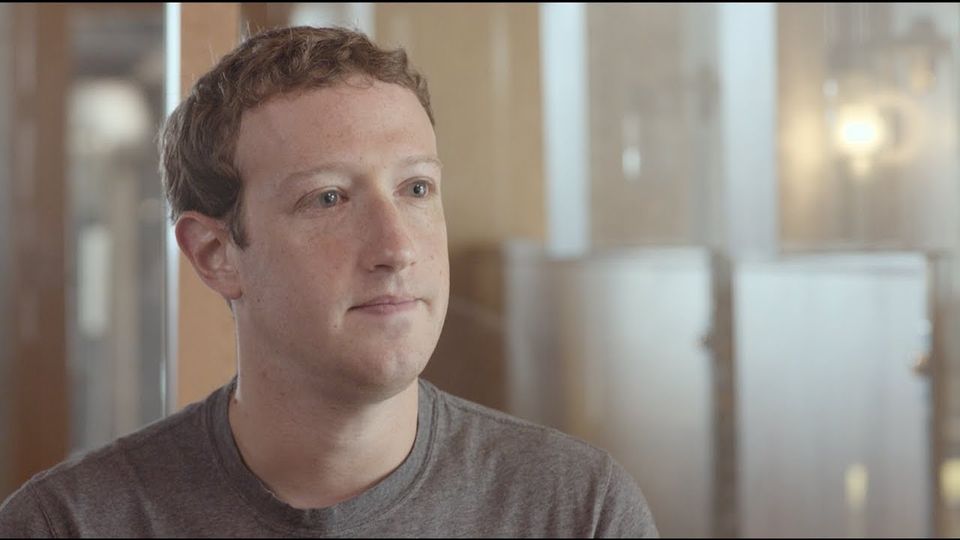Mark Zuckerberg: How to Build the Future | Summary and Q&A

Summary:
In this interview with Mark Zuckerberg, the conversation covers various aspects of building Facebook and the principles behind it. Zuckerberg discusses the early days of Facebook, the decision to turn it into a company, and the importance of solving real-world problems. He emphasizes the need for companies to be learning organizations and adapt quickly. The discussion also touches on Facebook's focus on connectivity, AI, and the potential of virtual and augmented reality. Zuckerberg shares advice on hiring and talent acquisition, as well as the significance of taking risks in a rapidly changing world.
- Zuckerberg started Facebook as a college project to connect students at Harvard, not expecting it to become a company. It grew rapidly as users wanted to connect.
- Turning down Yahoo's $1 billion acquisition offer was a pivotal moment. Many early employees left, but growth after launching News Feed validated the decision.
- Facebook focused on learning and iteration, empowering engineers to try new ideas. This culture of testing and data-driven development was key.
- Hiring for raw talent over experience, and providing opportunities for people to take on new roles allowed Facebook to build a strong team.
- Zuckerberg is excited about future transformations in connectivity, AI, and augmented/virtual reality computing platforms over the next 10-20 years.
Questions & Answers:
Q: What motivated you to start Facebook in the early days?
A: I've always been fascinated by people and their interactions. In college, I studied psychology and computer science, which helped me understand the importance of human connections. When I looked at the internet in 2004, it lacked a platform for people to understand and connect with each other, which inspired me to build Facebook.
Q: Did you envision Facebook as a company when you first started it?
A: No, when I built the first version of Facebook at Harvard, it was primarily to fulfill a need for my friends and me. We didn't set out to create a company; it was more about building something useful for our school community.
Q: What factors made Facebook different from your earlier projects and enabled it to become the company it is today?
A: Facebook's success stemmed from its sustained growth and user engagement. While previous projects served their purposes and concluded, Facebook continued to evolve and meet the needs of users. We followed what people wanted and expanded accordingly.
Q: What advice would you give to aspiring product builders?
A: Start by identifying a problem you're passionate about solving in the world. Building a successful company often begins with addressing a specific issue rather than just wanting to create a business for the sake of it.
Q: Can you share a low point in Facebook's early history and how you dealt with it?
A: One challenging moment was when Yahoo offered to buy Facebook for a substantial sum. It forced us to reevaluate our goals and whether we could create something more meaningful than what was being offered. We chose to turn down the offer, which caused some turmoil within the company.
Q: Were there times when you regretted turning down Yahoo's offer?
A: Initially, there was uncertainty, but shortly after, our rapid growth made it clear that declining the offer was the right decision. However, there have been other challenging decisions since then that were even more difficult.
Q: How do you make decisions about what to build and when to make significant changes within Facebook?
A: We prioritize learning quickly and efficiently. We use data and feedback to identify problems and test hypotheses. It's crucial to iterate and learn from how people use the platform, which informs our decisions.
Q: How did Facebook's "growth group" contribute to its rapid expansion, and would you recommend such a group to other companies?
A: The growth group at Facebook played a pivotal role in our rapid expansion. It focused on using data and experimentation to drive user growth. I'd recommend it for companies aiming to grow efficiently by leveraging their product's potential for viral adoption.
Q: How do you approach hiring and assessing talent, especially when experience may not be the primary factor?
A: We look for raw talent and potential, not just prior experience. People who are passionate and have shown their skills in various ways, such as side projects, can excel. We believe in creating opportunities for individuals to grow within the company.
Q: What excites you the most about the future, and how do you see Facebook's role in it?
A: Three main areas excite me: connectivity (bringing more people online), AI (unlocking potential across various domains), and virtual/augmented reality (transforming human experiences). Facebook aims to play a significant role in these transformations.
Q: What advice from Peter Thiel has influenced your approach to entrepreneurship?
A: Peter Thiel's advice about taking risks in a rapidly changing world has stuck with me. He emphasized that, in such a dynamic environment, the biggest risk one can take is to avoid taking any risks at all. It's crucial to embrace change and innovation.
Takeaways:
Zuckerberg emphasizes starting with solving a problem you care about, not deciding upfront you want to start a company; continually learning and experimenting to evolve a product; focusing on hiring talented people and giving them opportunities to grow; and taking risks, since the biggest risk is not taking any risks in a fast-changing world. His approach of caring about connecting people and learning from user data enabled Facebook's emergence from a simple college directory to a global platform.
